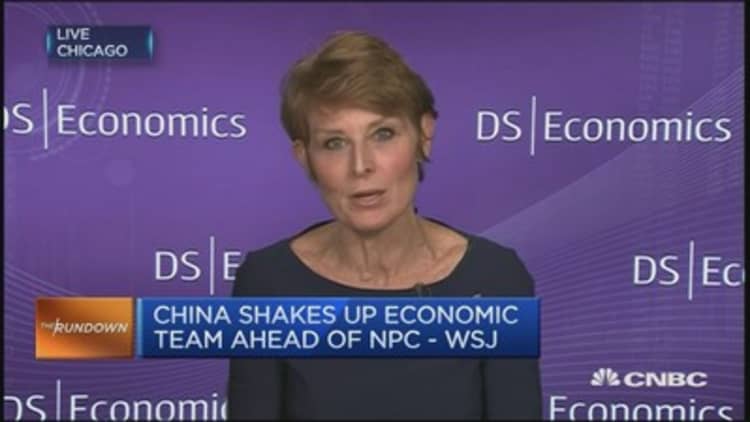
U.S. President Donald Trump's protectionist tone will likely hand China significant soft power on trade deals, economists said.
Diane Swonk, CEO of DS Economics, told CNBC's "The Rundown" on Friday that while she didn't expect the U.S. would label China a currency manipulator, she foresaw more trade tensions.
She expected that the administration would use the "back door" of the U.S. Commerce Department to target specific industries as dumping or violating trade rules, going across a spectrum of largely Asian economies to levy tariffs.
"That's really going to open the door for China to have a lot more power within Asia and power in Latin America, and in North America, even talking to Mexico directly now," she said. "That's going to change the equation for China and the balance of power on trade relative to the U.S. if we really pursue these bilateral agreements."
Trump has said he preferred to seek bilateral trade deals, rather than multilateral ones, such as the 12-country Trans-Pacific Partnership (TPP), which he withdrew the U.S. from after taking office.
Swonk's analysis was stark: "It may actually be to China's benefit and our loss."
To be sure, there's still a lot of uncertainty about what is rhetoric and what is policy.
During his campaign, Trump vowed to label the country a currency manipulator for the purposes of a competitive trade advantage on his first day in office and threatened to impose a tariff of as much as 45 percent on China's exports to the U.S.
On Thursday, U.S. Treasury Secretary Steven Mnuchin told CNBC that the administration would stick to the existing process to judge whether China was a currency manipulator. By those standards, China doesn't match the definition.
In fact, China's policymakers have appeared to be supporting their in recent months, not trying to push it lower.
But in an interview with Reuters on Thursday, shortly after Mnuchin's comments, Trump called China the "grand champions" of currency manipulation, saying he hasn't "held back" on the manipulator label despite not following through with his campaign vow.
Swonk wasn't alone in pointing to the Trump administration ramping up trade tensions as benefiting China.
In a note earlier this week, Natixis said Trump's targeting of Mexico would likely swing the U.S.'s Southern neighbor toward tighter ties with China.
Trump's rhetorical animus toward Mexico began with the announcement of his candidacy, which he referred to immigrants from the country as murderers and rapists. He's also threatened trade tariffs and more recently, to deport undocumented immigrants in the U.S. to Mexico, even if they aren't from Mexico.
Natixis said in a note dated Monday that Mexico has an "over-reliance" on the U.S. economy, with exports to the U.S. at 80 percent of total exports and nearly 29 percent of gross domestic product (GDP).
"It seems clear that Mexico must turn to the rest of the world in its export policy and the rest of the world, today, cannot be seen as excluding China," Natixis said.
It added that trade tensions may spur Mexico to pursue a bilateral free-trade deal with China, especially if NAFTA, or the North American Free Trade Agreement between Mexico, Canada and the U.S., were to be dismantled.
Trump has threatened to renegotiate the deal.
But Natixis noted that Mexico's vehicle assembly operations had become sophisticated enough that it was profitable to export to China, with China's average wage higher than Mexico's for the past three years.
"The amount of Mexican exports to China remains very low (only $5.2 billion in November 2016 compared to $301.6 billion to the U.S.), so the big challenge is to increase them as soon as possible so that Mexico can ward off part of the Trump tornado," Natixis said.
—By CNBC.Com's Leslie Shaffer; Follow her on Twitter @LeslieShaffer1


